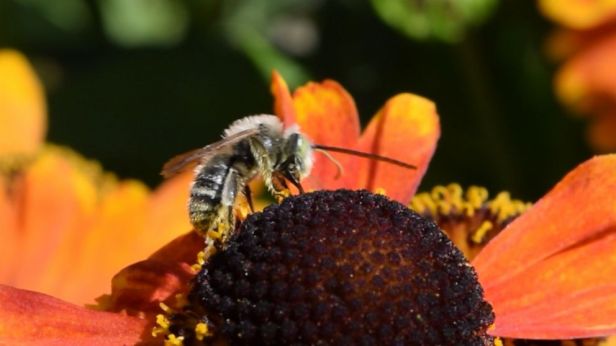
Introduction
Bees are essential for our planet and their importance cannot be overstated. They are responsible for pollinating crops and wildflowers, which helps to keep our ecosystems healthy. Bees are facing many threats, including habitat loss, pesticides, climate change and disease. These vital insects face numerous threats that put their survival at risk. In this article, we will delve into the various ways we can contribute to saving bees and securing a healthy future for both nature and ourselves.
Bees, the industrious pollinators that sustain our ecosystems, face a multitude of threats that endanger their survival. Understanding these challenges is crucial in formulating effective strategies to protect and preserve these vital insects.
Habitat loss: The availability of diverse habitats is essential for bees’ sustenance, encompassing flowering plants, trees and water sources. However, rampant urbanisation and agricultural expansion have led to the destruction and fragmentation of natural landscapes. This loss of habitat significantly diminishes bees’ access to food and suitable nesting sites.
Pesticides: Even small doses of pesticides can have devastating effects on bees. Neonicotinoids, a widely used class of insecticides, pose an acute threat by impairing the central nervous system of bees. Prolonged exposure can result in disorientation, impaired navigation skills, reduced immunity against diseases and even death.
Climate change: The consequences of climate change reverberate throughout nature’s delicate balance – including bee populations. Rising temperatures alter the timing and duration of seasons while disrupting floral bloom cycles critical for bee nutrition. These changes lead to mismatches between when flowers are available for pollination and when bees require them most urgently.
Disease: Diseases like Colony Collapse Disorder (CCD) cast a dark shadow over bee colonies worldwide. CCD causes widespread colony losses as infected individuals abandon their hives en masse or fail to return from foraging trips due to compromised health conditions caused by factors such as pathogens or environmental stressors.
By comprehending these threats holistically – habitat loss compromising food availability; pesticides undermining their vitality; climate change altering ecosystems; diseases decimating colonies – we gain insight into how interconnected actions must be taken to safeguard bee populations effectively.
Ways To Save Bees
Plant bee-friendly gardens: By cultivating bee-friendly gardens with an abundance of flowers rich in nectar and pollen, we provide essential nourishment for these precious pollinators.
Avoid using pesticides: Minimising or completely avoiding pesticide usage helps to save bees from harmful substances that can compromise their health.
Support organic farming: Opting for organic farming practices over conventional ones significantly reduces harm inflicted upon bees during agricultural activities.
Buy local honey: Purchasing locally sourced honey not only supports local beekeepers but also contributes towards maintaining healthy bee populations within your area.
Educate others about the importance of bees: Spreading awareness regarding the significance of these remarkable insects is crucial. By educating others, we encourage collective action to protect and save bees.
Conclusion
Bees are not merely buzzing creatures; they hold a vital role in sustaining our ecosystems. Through their pollination efforts, they facilitate the growth of crops and wildflowers, ensuring a healthy planet for all living organisms. Recognizing the threats they face – habitat loss, pesticides, climate change and diseases – prompts us to take immediate action to save planet, bees and promote beekeeping.
By implementing simple yet impactful steps such as planting bee-friendly gardens, avoiding pesticide usage, supporting organic farming practices, purchasing local honey products and educating others about bee conservation’s urgency – we can actively contribute to saving these essential creatures.
Let us unite in our efforts to safeguard bees’ well-being so that future generations can continue benefiting from their indispensable services while fostering a thriving environment for all life on Earth. Together, we can save planet and bees to promote sustainable beekeeping for a brighter future.
